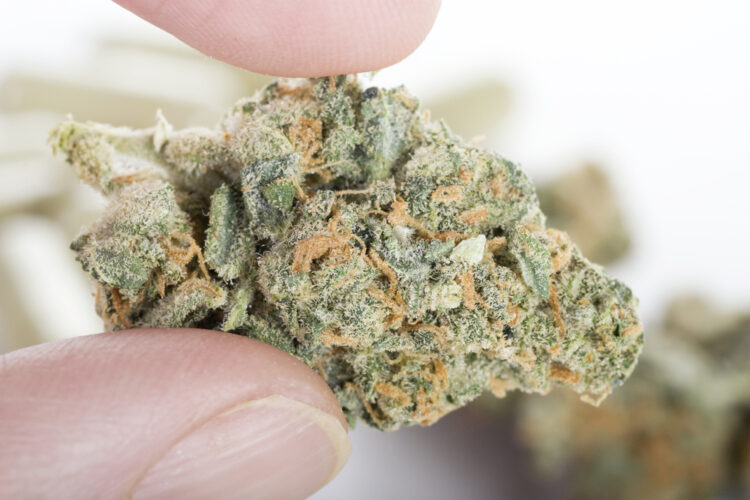In the rapidly evolving world of cannabis research, a new focus has emerged beyond the well-known psychoactive properties of THC. At the forefront of this movement is THCA Flower—a product that emphasizes the untapped potential of tetrahydrocannabinolic acid (THCA), the natural, non-intoxicating precursor to THC.
What is THCA?
THCA is found abundantly in raw, unheated cannabis. Unlike THC, which becomes psychoactive after exposure to heat via a process called decarboxylation, THCA remains non-psychoactive in its natural state. This unique property has captured the interest of both researchers and wellness advocates who are looking to explore the therapeutic benefits of cannabis without its mind-altering effects.
The Science Behind THCA Flower
Decarboxylation and Its Implications
Decarboxylation is the chemical reaction responsible for converting THCA into THC when cannabis is heated. This process is central to understanding why THCA Flower holds such promise. By avoiding heat, the integrity of THCA is preserved, which means consumers can potentially access its benefits without experiencing a “high.” This natural state of THCA is what differentiates THCA Flower from other cannabis products.
Potential Health Benefits
While research is still in its early stages, preliminary studies suggest several possible advantages of THCA:
Anti-Inflammatory Properties: THCA may play a role in reducing inflammation, making it a potential candidate for managing conditions characterized by chronic inflammation.
Neuroprotective Effects: There is growing interest in THCA’s potential to protect brain cells, which could have implications for neurodegenerative diseases.
Support for Digestive and Metabolic Health: Emerging theories indicate that THCA might assist in regulating metabolism and easing gastrointestinal discomfort.
Ongoing research is expected to clarify these benefits and establish optimal methods for incorporating THCA into wellness routines.
The Rise of THCA Flower in the Market
Cultivation and Extraction Techniques
The growing demand for THCA has spurred innovation among cultivators. Advanced breeding techniques and precise extraction methods are employed to maximize the concentration of THCA in the final product. These innovations ensure that THCA Flower not only retains its unique properties but also meets the quality standards required by a discerning market.
Consumption Methods
The versatility of THCA Flower is one of its most appealing aspects. Consumers have several options:
Raw Consumption: Health enthusiasts often incorporate raw cannabis into juices or smoothies, thereby preserving the natural THCA content.
Specialized Products: Beyond raw consumption, an emerging market for THCA tinctures, edibles, and topical applications offers consumers a range of ways to benefit from THCA without experiencing intoxication.
These diverse consumption methods align with a broader shift toward natural, holistic wellness practices.
Navigating the Regulatory Landscape
Legal Considerations
Legal frameworks surrounding cannabis have traditionally focused on THC and its psychoactive effects. However, the non-intoxicating nature of THCA is beginning to prompt a reexamination of existing regulations. As research continues to shed light on the potential benefits of THCA, regulatory bodies may eventually create more nuanced policies that recognize the differences between psychoactive and non-psychoactive cannabis components.
Educating Consumers
A key challenge in the market is ensuring that consumers understand the distinction between THCA and THC. Informed consumers are better equipped to make decisions that align with their wellness objectives. Reliable information and transparent labeling practices are essential as the market for THCA Flower continues to expand.
Looking Forward: The Future of THCA Flower
The evolution of THCA Flower represents a significant milestone in the broader narrative of cannabis innovation. With ongoing scientific studies and a growing base of anecdotal evidence, the future for THCA looks promising:
Enhanced Clinical Trials: Comprehensive clinical research is needed to identify safe, effective dosages and fully understand long-term health impacts.
Product Diversification: We can expect to see a surge in THCA-based products that cater specifically to medical and wellness consumers.
Regulatory Evolution: As more data becomes available, legislation is likely to evolve, potentially providing clearer guidelines for the production and consumption of THCA products.
THCA Flower stands at the intersection of traditional cannabis use and modern health-oriented lifestyles. By preserving the natural properties of THCA, these products offer a compelling alternative for individuals seeking the potential therapeutic benefits of cannabis without its intoxicating effects. As research continues and the market for THCA expands, THCA Flower is poised to redefine our understanding of cannabis and its role in holistic wellness.

